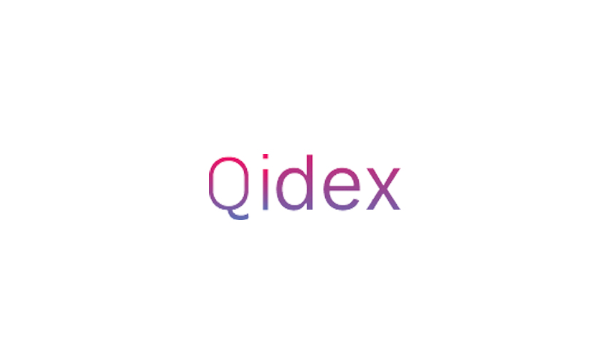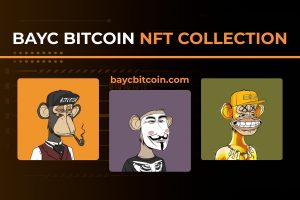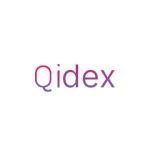Qidex Gearing up for the Release of an Advanced Decentralized Exchange on Qi Blockchain

Qidex is gearing up for the release of an advanced decentralized exchange on Qi blockchain. The Centralized exchanges have been dominant in the blockchain space ever since the idea first came into being, but the last few years witnessed the rise of decentralized exchanges. The latter offers far more benefits, and projects have been moving toward it for token listings. There were still some loopholes here and there that acted as a barrier to mass adoption. But that changes with the release of Qidex, a decentralized exchange on the Qi blockchain.
Qidex is the latest offering in the De-Fi ecosystem, and since Qi Blockchain is designed for finance with low fees and almost real-time execution, things couldn’t be any better. Decentralized Finance has transformed the space in the past 2 years, eliminated the need for middlemen, helped lower transaction fees, and streamlined the whole process. A centralized exchange like Luno charges 2%, while users are charged a mere 0.3% fee on Qidex. Listing fees on centralized crypto exchanges can range between 50k – 200k USD on average for a new cryptocurrency, and as per the latest figures, around 1000 tokens were created per month in 2022. This helps one identify the need for a decentralized exchange like Qidex in a space growing faster than ever.
Automated Market Making has arguably been the biggest development in the Defi space, and Qidex is sure to capitalize on that. A decentralized exchange doesn’t charge any listing fees, but the token creator is required to deposit or stake a fixed quota of tokens while a given percentage is reserved for liquidity pools.
Users can then stake, which is similar to depositing cryptocurrency in a pool to earn a steady passive income. Users can stake a minimum of 20,000 QIE to be eligible for a share in the swapping fees and 30,000 to obtain the lower swapping fees as well.
Qidex not only allows users to stake in the liquidity pool but also offers lower trading fees when certain thresholds are met. Qidex rewards users with Qidex, the native token, which is a QIE-20 standard token on the Qi blockchain. Qi blockchain is not to be confused with Benqi. The latter is a standard ERC-20 token on the Ethereum network, while Qi is a full-fledged advanced blockchain with QIE as the native token.
Qi blockchain, with its trading symbol QIE, is a coin similar to ETH on the Ethereum blockchain, where tokens like Maker, Shiba Inu, Tether, Chainlink, and thousands of others are developed. The key distinction between a coin and a token is that the former is the native asset of a Blockchain, for instance, Bitcoin and Ethereum, whereas the latter is created by platforms and projects developed on an existing Blockchain.
Benefits of Decentralized exchanges
Decentralized Exchanges are undoubtedly more user-friendly and have become the preferred choice for token listings by developers. And it only makes sense, given the autonomy in decision-making and the community-driven nature.
- Custody: DEXs are non-custodial, which means traders don’t need to relinquish the control of private keys to transact. Instead, externally held wallets interact with DEXs, and trades self-execute through smart contracts. Centralized exchanges, by contrast, play the role of custodians of funds by controlling the private keys. It requires users to relinquish control of their private keys, but centralized exchanges offer trust and security.
- Diversity: In October 2020, there were over 7,400 cryptocurrencies in the market. CEXs exercise control over the listed cryptocurrencies and will generally only list those with adequate trading activity, prevalence, and effective security standards to ensure profitability and legal compliance. Many altcoins are only accessible through DEXs, where P2P transactions can occur without high trading volumes. This provides a wider opportunity for engagement in digital assets and enhances financial inclusion.
- Trustless Transactions: On CEXs, every transaction is overseen and recorded by a central authority, the exchange itself. Through smart contracts, DEXs execute trades and record them on the blockchain, enabling trustless transactions. And since DEXs do not hold the funds, they are less likely to be targeted by hackers.
- Lower Fees: Decentralized exchanges function through the use of self-executing smart contracts. In the absence of an intermediary, DEXs use the same “gas” fee structure as the blockchain they’re built on. DEXs charge a low fee, around 0.3% for exchanges like Uniswap. Although the fees fluctuate in response to the network utilization, they remain far lower than the costs incurred on centralized alternatives.
- Privacy: Traders using decentralized exchanges don’t need to disclose their private keys because wallets are held externally, and the DEX is not liable for the funds. For the same reason, users aren’t typically required to complete KYC and AML procedures when using DEXs. While this may be advantageous in regard to convenience, it is potentially problematic from a legal perspective.
Why create tokens?
Generally speaking, most exchange tokens are designed to increase an exchange’s liquidity, incentivize trading activity, the right to vote, or facilitate an exchange’s community governance process. The most common use case for creating a crypto token is to incentivize users to participate in DeFi or another decentralized app more actively. It should also offer a way to transact for in-gaming or in-app purchases. Blockchain is known for creating a transparent ledger with a record of all transactions, making it easy for a global audience to capitalize on the technology for new opportunities by streamlining services in supply management (logistics), traditional banking, and investments. Smart contract functionality allows contracts to be executed without third parties. Think of how much can be achieved by sending and verifying information without third parties.
Utility tokens are a popular class of crypto tokens that act as a store of value and grant users access to a specific service or product in the blockchain ecosystem. Tokens can be transferred globally with very low fees and in real time. It allows a feasible way to solve gaming or global ecosystem issues compared to paying via EFT/Fiat, which may not be feasible in other corners of the world. Some of the best tokens ever created offer a lot of value and utility like Aave, MakerDao, Tether, Augur, Chainlink, and many more.
Qidex also has a user-friendly token launcher to ensure users can build tokens on Qi Blockchain within minutes and deploy them successfully without any coding experience.
- Instant Token Creation
- No need for Coders
- Doesn’t require an in-depth understanding of cryptocurrency
- After creation, the token can be used almost immediately
- Affordable – (FREE)
- Time Effective
With this token launcher, users can deploy their own token, give it a unique name, choose the maximum supply, and address tokenomics like burning, reflection tokens, minting more, capped amount, etc., with a very easy-to-use front-end.
The blockchain ecosystem gave the world new technological capabilities, including digital assets, smart contracts, and decentralized applications (DApps). These tools have become essential components of decentralized finance initiatives as they addressed the primary problems in the previous system, and De-Fi projects quickly became mainstream. Anyone can enter the De-Fi space with the help of Qidex.
Facebook: https://www.facebook.com/profile.php?id=100087150605472
Instagram: https://www.instagram.com/qidex.site/
Twitter: https://twitter.com/dex_qi
Discuss this news on our Telegram Community. Subscribe to us on Google news and do follow us on Twitter @Blockmanity
Did you like the news you just read? Please leave a feedback to help us serve you better
Disclaimer: Blockmanity is a news portal and does not provide any financial advice. Blockmanity's role is to inform the cryptocurrency and blockchain community about what's going on in this space. Please do your own due diligence before making any investment. Blockmanity won't be responsible for any loss of funds.














